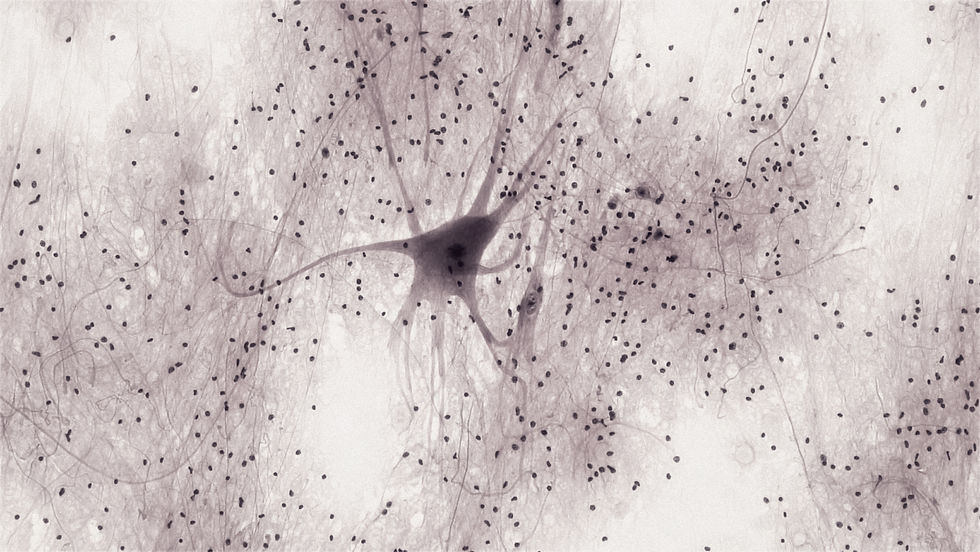What is Depression: Symptoms, Causes and Treatments:
- stephanie Betschart
- Mar 10, 2021
- 3 min read
Updated: Feb 18
Depression is a common mental health problem that causes people to experience low mood, over an extended period of time in such a way that it interferes with their everyday activities.

How to recognise Depression (1):
Depression symptoms may vary among people but generally encompass a feeling of sadness or hopelessness. These can include:
Depressed mood most of the day, feeling empty, sad, or tearful.
Loss of interest in daily activities.
Significant weight loss or weight gain.
Feeling nervous, restless, irritable, angry or grouchy on a daily basis
Fatigue, loss of energy.
Lack of concentration, indecisiveness.
Feelings of worthlessness or inappropriate guilt
Recurring thoughts of death
Some symptoms are purely physical, such as: changes in appetite; constipation; low sex drive (loss of libido); unexplained aches and pains; or Sleep disturbance, either insomnia or sleeping all day for example:
The social symptoms of depression will impact our family life, friendships and work life more obviously maybe. They include avoiding contact with friends and taking part in fewer social activities; neglecting your hobbies and interests; having difficulties in your home, work or family life.
There are different forms of depression (2). These include:
Seasonal affective disorder (SAD) - This is when depression affects you at certain times of the year.
Dysthymia - This is when you have mild depression continuously for over two years and may also be called chronic depression or persistent depressive disorder.
Bipolar disorder - This is when you experience extreme lows and extreme highs (known as manic episodes).
Prenatal depression - This is when depression happens during pregnancy.
Postnatal depression (PND) - This is when depression happens after having a baby. It usually affects the mother, but fathers can experience it too.
Causes of Depression:
The causes of depression will be different from person to person and may be complex.
Causes can vary from bereavement, a relationship or family breakdown, work related stress or a change in living conditions.
It can also be related to childhood experiences. Depression can also be triggered by illness or other physical factors; it is often exacerbated by alcohol, drug use and smoking.
Treatments for Depression (3) (4):
Depression is treatable, usually with a combination of :
self-help strategies, including changes in lifestyles, that can all be explored and supported through a course of Hypnotherapy,
medication, if necessary, can be taken on their own or in conjunction with talking therapies and hypnotherapy. Your GP will be able to advise you on anti-depressants.
Talking therapies involve speaking in confidence to a trained professional about problems or issues that may be causing concern. Types of talking therapies include cognitive behavioural therapy (CBT), counselling and psychotherapy,
Additionally, modern research shows the efficacy in solution Focused therapy and Hypnotherapy for the treatment of depression:
Solution focused therapy has been shown to be highly effective at reducing depressive symptoms with the benefits being to increase over time after the end of the therapy (4),
Hypnotherapy in conjunction with talking therapy has also shown in many studies to help considerably with the relief of the symptoms of depression in much shorter times than talking therapy alone (5).
And because hypnotherapy sessions also help with associated issues such as phobias, substance abuse, eating disorders, low self esteem, social behaviour patterns, motivation development, etc, commonly encountered in such patients, at the subconscious level, it is shown to have profound long term impact (5).
“Cognitive behavioural hypnotherapy has demonstrated 70% enhanced treatment outcomes and long term remission compared to CBT alone, in meta-analysis of 18 relative studies.” (5)
If you think you maybe suffering with depression, you will need to see your Family doctor (GP) to get a diagnosis. They may prescribe you anti-depressants. Perhaps suggesting counselling or cognitive behavioural therapy on the NHS. If you are thinking of having some hypnotherapy, you could mention it to them.
If you, or someone close to you, are suicidal, please seek medical help urgently. See your GP and for immediate support, call the Samaritans (phone 116 123) or Childline (phone 08001111).
References:
NHS Choices (2016) Clinical Depression. Retrieved from https://www.nhs.uk/conditions/clinical-depression/
MIND (2019) About depression: https://www.mind.org.uk/information-support/types-of-mental-health-problems/depression/about-depression/
Mental Health Foundation (2018) Depression: https://www.mentalhealth.org.uk/a-to-z/d/depression
Journal of Medical Internet research, Kramer, et Al, “Effectiveness of a Web-Based Solution-Focused Brief Chat Treatment for Depressed Adolescents and Young Adults: Randomized Controlled Trial” (2014).
BMJ 2016; 354 doi: https://doi.org/10.1136/bmj.i4114 (Published 25 July 2016) Rapid Response: Clinical hypnotherapy for depression, anxiety, somatization syndromes.
My name is Stephanie Betschart, As a solution focused hypnotherapist, I specialise in helping people recover from anxiety and stress, bounce back after burn outs, move on from depression, improve confidence and self-esteem and foster embodied resilience.




Comments